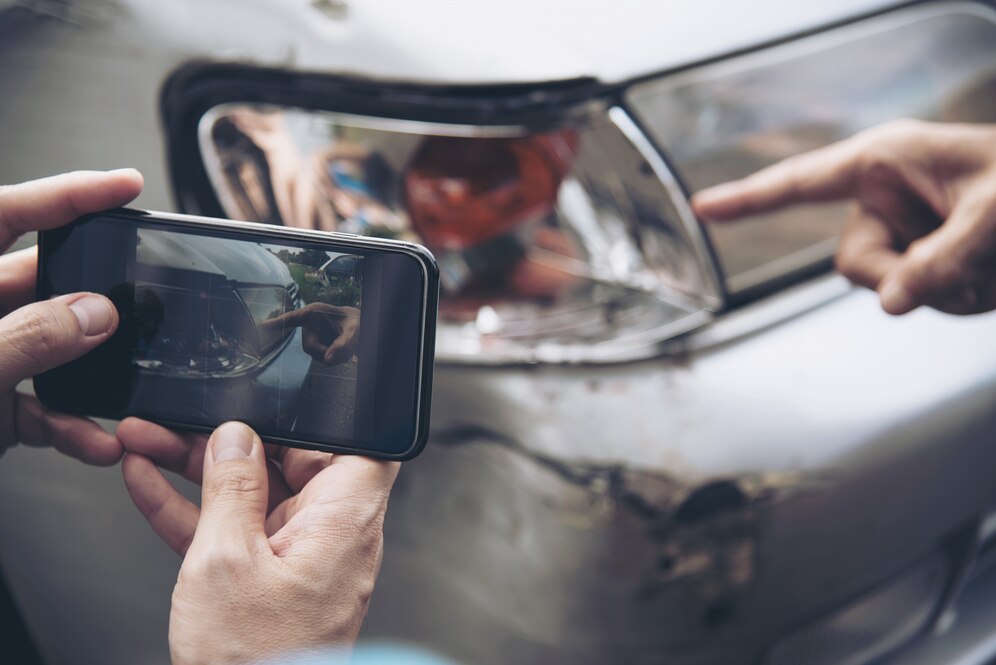Car accidents can be a traumatizing experience, leaving victims feeling overwhelmed and unsure of the appropriate steps to take in the immediate aftermath. By understanding the critical actions to take after a car accident, individuals can better protect their rights and put themselves in a favorable position to seek compensation for injuries and damages.
As an experienced boutique law firm in Orlando, FL, specializing in car accident personal injury cases, we are committed to providing valuable guidance and support for those affected by car accidents.
In this comprehensive guide, we will discuss the crucial steps to take following a car accident, along with important legal considerations and your rights. Our objective is to help you navigate this challenging time, ensuring that you gather essential evidence, receive appropriate medical care, and seek professional legal assistance in your pursuit of compensation.
Safety First: Prioritizing Well-Being at the Accident Scene
Immediately following a car accident, the first priority should be ensuring the safety of all involved. Here are some steps to take:
1. Check for injuries: Assess yourself and others for injuries. Call 911 if anyone is severely injured, and do not attempt to move anyone who might have sustained serious injuries until emergency medical professionals arrive.
2. Assess the scene: If possible, and without causing further harm, move your vehicle to the side of the road. If moving the vehicle is not an option, turn on your hazard lights and set up warning triangles or flares to alert other drivers to the accident.
3. Stay at the scene: Do not leave the scene of the accident until it is appropriate to do so, as leaving prematurely may result in hit-and-run penalties.
By prioritizing safety, you can help reduce the risk of further injury or damage while awaiting assistance.
Documenting the Accident: Gathering Crucial Evidence
Collecting and documenting evidence following a car accident is essential to support your claims for compensation later. Here are some tips for gathering evidence at the scene:
1. Take photographs: Capture pictures of the accident scene, including vehicle damage, weather and road conditions, and any relevant traffic signs.
2. Exchange information: Obtain names, phone numbers, and insurance information from the other driver(s) involved in the accident.
3. Speak with witnesses: If there are any witnesses to the accident, ask for their contact information and a brief account of what they observed.
4. Record personal details: Write down how the accident occurred from your perspective, and note any injuries you experienced immediately or soon after the incident.
5. Contact law enforcement: If necessary, call the police and obtain a copy of the police report.
By gathering comprehensive evidence at the scene, you will be better equipped to support your case when seeking compensation.
Seeking Medical Attention: Caring for Injuries and Documenting Care
Receiving prompt medical attention following a car accident is crucial, even if you believe your injuries to be minor. Here’s why:
1. Identifying hidden injuries: Some injuries, such as concussions or whiplash, may not present immediate symptoms but can have lasting effects if left untreated.
2. Establishing a connection: Seeking medical care right away helps establish a clear link between the accident and your injuries, which is essential for your personal injury claim.
3. Documenting your injuries: Medical records serve as crucial evidence of the extent of your injuries and can be used in your claim for compensation.
Reporting the Accident: Informing Authorities and Insurers
It’s essential to report car accidents to both law enforcement and insurance companies. Here’s what you need to know:
1. Call the police: If there are injuries, significant property damage, or if mandated by state laws, call the police to report the accident. Ensure that you’re provided with a copy of the police report, as it will be an important piece of evidence for your claim.
2. Contact your insurance company: Notify your insurance carrier of the accident as soon as possible. Be honest and provide as much information as you can. However, avoid admitting fault or discussing the details of your injuries until you’ve spoken to a personal injury attorney.
Legal Considerations and Your Rights: Working with an Experienced Car Accident Attorney
When seeking compensation for injuries and damages incurred in a car accident, working with an experienced car accident attorney may provide several benefits, including:
1. Evaluating your case: A skilled attorney can assess your case’s strengths and weaknesses, providing valuable guidance on the best course of action.
2. Navigating the claims process: An attorney can help you navigate the claims process and communicate with insurance adjusters on your behalf, protecting your interests.
3. Negotiating compensation: A knowledgeable attorney has experience negotiating fair settlements, ensuring that you receive appropriate compensation for your injuries and damages.
4. Representing you in court: If a settlement cannot be reached, an attorney can represent you in court, fighting for your rights and best interests.
Final Thoughts
Navigating the aftermath of a car accident can be challenging, but by following these steps to prioritize safety, gather evidence, seek medical attention, and report the accident, you can protect your rights and seek compensation successfully. An experienced car accident attorney can provide invaluable assistance throughout the legal process, ensuring that you receive the compensation you deserve.
If you or a loved one has experienced a car accident, we encourage you to reach out to our skilled accident attorney in Orlando at Davison & O’Neil, PLLC, for a free consultation. Let us help you understand your rights and build a strong case to obtain the compensation you’re entitled to.

